|
I love my friends. That's why I'm mean to them.
"Hey, man. There's this really cool Exeter party on Friday. I'd totally invite you... but, honestly, you're kind of a clinger, and I don't want to have to babysit you." This is a real conversation I had with a dear friend recently. She's super cool, and she's got a lot going for her -- she's gorgeous, she's smart, and she's way more open-minded than I am. But I hate inviting her to stuff, because she doesn't mingle. She doesn't make small talk with other people at the event. She just stands next to me, goes where I go... and when I start talking to other people, she either stands there awkwardly and says nothing, or goes to sit in some dark corner all by herself. As another friend, Sam, who also wrote an amazing guest post for the Happy Talent, once told me, "Eva, you're hard. And soft. But not medium." It felt pretty accurate. I'm a hopeless romantic -- but I also think it's important to be "rude".
Which is why, when Alex is off pouting in a corner, I do my best to ignore her and not care. I mean, there are no victims, only volunteers, right?
She's a grown-ass woman, and it's not my job to entertain her, right? But... I'd say about 1% of me still feels guilty when she does this. Even though I know I'm not the one who's being rude -- she is! She's still my friend. Plus, her pountenance (pretty sure I just coined an amazing new term -- after all, one of the five words that best describes me is neologistic :P) is hard to ignore... Other people at the event will mention it. "Did I do something wrong? Is your friend mad at me?" "Why is she acting like that?" "Maybe you'd better go check on your friend." And it's like, look.I invite you to things because I like you and I want to help you have an interesting life and a good time... But you're making my night suck a little. That's why I have to be mean. Because I love her. And until she learns to mingle, I can't invite her to stuff anymore. So what can she do to improve? I've written countless articles on this already, and I will share some here: 1. Skip the small talk. One common excuse people like Alex use is that they "hate small talk." I talk to, like, three or more people per day that I don't know... and I'm pretty sure none of us ever engage in small talk. For example, I went to The Shop at Flywheel Press last night. I went for their August First Friday event, and two of my favorite local bands (The Complements and Ten Thousand Ways) were playing. I mean, I was, too, actually. I was super excited -- I practiced and everything! Since I was performing first, I arrived before anyone else I knew... and basically just had thirty minutes in The Shop to mingle by myself. Since I had no idea what "First Fridays" or "Flywheel" were, I approached two women who were looking at artwork on the walls and said, "Who are you, what is this, and why are you here?" Which, I guess is vaguely small talk-y... but it turned into a really cool conversation about artists and entrepreneurship and small business ownership. Next, I headed to a children's exhibit. There were a dozen typewriters out, and children of all ages were tapping carefully away at them. I had no idea how to use a typewriter, so I interrupted two men who were clearly in the middle of a conversation. "You're older than me. Do you know how to do this?" One of the guys showed me how to adjust the margins and what the different buttons did. I thanked him. "Thanks! Now I can type out some of my lyrics. Because guess what? I'm playing next!" "Really? Cool. What are you playing?" "Guitar. No one told me there were going to be so many kids here, though, so my set list is full of like, raunchy sex songs. And I can't change it, because I don't know anything else!" His smile vanished as he looked nervously at his two children. After a pause, I continued, "I was totally joking. I'm a nice girl! My songs are about, like, op-eds I read in the New York Times." He still didn't say anything. "You're English, right? I thought you'd appreciate the deadpan." "Oh," he finally responded. "Yes. That was very good." From there, we talked about some of our favorite op-eds -- is that small talk? I don't know. It didn't feel like small talk, because we were engaging deeply with each other about our shared interests. We could have just as easily talked about Stratford, Oxford, or the Gloucester Cheese Race...
Which I participated in back in 2007!
Is that small talk? Travel stories? Glorious moments and proud achievements? I don't think so. Even if, by some definition, it totally were, it still wouldn't feel like small talk -- because big minds don't make small talk. To a curious and engaged person, small talk gets big. Which leads me to my next point: 2. Practice and improve your charisma. History is full of examples of famously "charismatic" people... who didn't start out that way. Steve Jobs is one. Marilyn Monroe is another. In fact, to quote Olivia Fox Cabane, author of The Charisma Myth: How Anyone Can Master the Art and Science of Personal Magnetism (which everyone, even super charismatic people, should read): It was 1955, and Marilyn Monroe wanted to prove a point. She was the talk of Hollywood -- an international sensation with several leading roles under her belt. Yet when she entered Grand Central Station with a photographer in tow, no one noticed. No one noticed her as she stood waiting for train. No one noticed when she boarded her train and rode quietly to her destination. When she got off her train, she turned to her photographer and said, "So, do you want to see her? The Marilyn?" She didn't say or do anything. She just changed her pose, changed the expression on her face, and "time stood still, as did the people around her." That is, until she was swamped by fans. Read more > People tend to think of charisma as a magical, innate je ne sais quoi. Something you're born with, or you're not. But research shows that charisma (like playfulness!) is not a trait, but a skill. Charisma is the result of specific thoughts and behaviors. Behaviors we're born able to learn... but that some people learn better, sooner or differently than others. According to Cabane, there are three main components of charisma: behaviors of warmth: behaviors of behaviors of warmth, behaviors of presence, and behaviors of power. This makes sense, from an evolutionary perspective. In order to maximize our chances of survival, we should be drawn to people who are both powerful (so they can help us fight off enemies, hunt, and gather resources) and who like us (as indicated by presence and warmth -- because what good is it to be around powerful people, if they don't like us enough to help us through hardship?). You can read more about this in These Specific Behaviors Will Make You More Charismatic, Starting RIGHT Now, or check out Cabane's book. 3. Stop worrying so much what others think about you. This is really a combination of 1. Skip the small talk and 2. Improve your charisma. Because when you're worried about what other people might be thinking about you, you're less warm (because people see anxiety on your face, and they think it's somehow related to your feelings about them) and you seem less confident and powerful (because you're not acting confident or powerful). Your anxiety makes you less open, silly, and creative, so you end up saying inane stuff about the weather. It's hard not to worry what others are thinking -- in fact, unless you're a sociopath or a psychopath, it's basically impossible. But. There are ways to become less aware, less self-conscious. As I wrote in 3 Proven Ways to STOP Caring What Others Think About You, One great thing that happens when you achieve flow is that you’re immersed in what you’re doing, so you don’t worry what others are thinking of you. But what if you’re not “doing” anything? What if you are sitting on a bench, eating a meal, or doing some other activity where there is no challenge or mastery? There were no squirrels or leaves at last night's event -- but there was artwork on the walls. There were children dancing. There were creative types aplenty. There was plenty to be immersed in, other than my own thoughts about myself. If you want to learn more about presence and mindfulness, read anything by Thich Nhat Hanh — especially You Are Here: Discovering the Magic of the Present Moment and The Miracle of Mindfulness: An Introduction to the Practice of Meditation. 4. Have interesting opinions, expertise, and experiences. Lots of people feel like they're "not interesting" and "don't have anything to say." This is primarily a confidence problem... but it could still have a basis in reality. What do you do in your free time? Play Candy Crush? Scroll through your newsfeed? Or read incredibly interesting books and articles? Do you fill your face with pretty makeup and your hair with pretty bobbles? Or do you fill your mind with ideas? Because if you have nothing to say, your looks aren't going to hold anyone's interest for long. Here are a few suggestions I shared in my Quora answer to "How could I be more interesting and stop boring people?" Read. Need some outstanding recommendations? Here are a few books I love talking (and writing!) about:
I could go on and on. I guess I read a lot. Which is great -- it means I'm always learning new ideas and concepts. It means I never run out of things to talk or think about. It means I'm never bored -- and, probably, no one would ever call me boring. (Though I was talking about log-normal distributions at surf camp recently, and one of the surf guides was like, "I can't listen to this. It's too math-y for me." So I guess at least one person would call me boring. His loss.) Next, you've got to: DO things. You have nothing to talk about? Really? I have a TON to talk about. In addition to the work I do at Paved With Verbs, which I totally love, I have tons of sports and hobbies. For example, as I wrote in The Best Productivity Hack In The Whole World... Is This One, I make plans almost every weekend. "Here," the post wrote, "are my past five weekends": In addition to awesome weekend trips, I also have fun during the week. "I play frisbee (join a league — it’s $109, and along with a free t-shirt and frisbee, you get 12 people who are forced to hang out with you for two hours every week :P); pickup (and some organized) basketball; and rock climb," I wrote. (And, to reiterate, these things all keep me super productive and on-task when I'm working -- because I have hard stops and deadlines to keep me working.) Additionally, I’ve been writing my own songs — and playing them at open mic nights and songwriting competitions. I just finished a new song called Respect the Call. It’s about basketball. And forgiveness. I love playing it. I’m also working on a song called Eroticism is Dead. Ask me about it! Long story short: if you have nothing to talk about and that keeps you from mingling, you need to read and do more. But, of course, you've also got to: 5. Listen attentively and ask great follow-up questions. People don’t just want to listen to you talk all day. They also want to talk about themselves — the books they’re reading! The adventures they’re having! So make sure you show interest in other people. Genuine interest is best, but if they’re not super conversational, you can always ask something canned, like, “What was your proudest moment?” or, “Other than work, what are you working on these days?” But asking questions isn’t enough. As I wrote in You May be Asking All the Right Questions, But Here’s What You’re Forgetting: Even after discussing our favorite books, kicking our shoes off and running through a fountain, and playing music together – there was something off. So how do you respond authentically? Among other things, the post continues:
The great thing about listening is that you always learn something. As I wrote in How to Write Your University of California (UC) Application Essays 2017:
Some people view small talk as a prerequisite to meaningful conversation. But me? I dive right into the Creative Conversation – and that’s why I never stop learning… I guess books and blog posts aren't the only great source of new information. 6. Act (and, ideally, feel) like you belong. I already said that Alex has a lot going for her. But, apparently, confidence isn't one of them. When I told her she's a clinger, not a mingler, she replied: "I feel weird butting into conversations." To which I replied: "Yeah. The reason you feel weird is because you have a confidence problem, apparently. You don't think you're valuable. You don't think you're wanted. You think you are an intrusion with nothing interest to contribute. Of course you feel awkward." When I'd interrupted those two men at Fylwheel to ask about the typewriter, I knew they were in the middle of a conversation, and I was interrupting. But I never thought of myself as "butting in." There are a lot of psychology studies on the importance of belonging. Feelings of belonging keep students from dropping out of school or quitting their jobs. Feelings of belonging build community and help us fit in and excel. It's beyond me how you could show up at a social event where everyone is mingling and feel like you don't belong... but I guess it's a thing people struggle with. I'm annoyed that Alex could feel this way, because she is interesting and she is hilarious. Why would she approach a party or event like she wasn't? I wrote some advice she might benefit from in Maybe the Reason You Stopped Improving is Because You Were Driven by a Fear of Failure, Not a Desire to Succeed. The "fear of failure" mindset... sets you up for failure. And the "desire to succeed" mindset sets you up for success.
It's a vicious, self-fulfilling cycle. You don't join conversations because you have a "fear of failure"/scarcity mindset... and then when you finally do join one, you're all awkward and negative and weird, so no one wants to talk to you, which reinforces the idea that you're not "fun" or "worth" talking to.
But it's also no surprise. Which person would you rather talk to? If you truly feel like you don't belong, there's something up with you. Like, you're incorrect. And you need to fix your attitude and reframe your thinking. As I wrote in Cognitive Reframing Is One of The Most Powerful Psychology Hacks Ever Invented, And It Only Takes a Few Minutes: Cognitive reframing has long been used in cognitive behavioral therapy (CBT) to help patients with identify -- and then dispute -- negative thoughts and thought patterns. Originally developed to combat depression, it quickly caught on among psychologists, and soon spread to more general uses. You are just as welcome and wanted in this room as anyone else. That is a true fact. But if you're still feeling paranoid, imagine some "alternative facts" - just for a moment. You don't have to believe them. They don't have to be true. Just visualize a story or situation where you are the hero, the rock star, the motivational speaker, the billionaire -- or even the beauty. Imagine that people want to talk to you -- even if you don't believe it. Because part of your brain will think it's real, and it will boost your confidence and lower your anxiety. If you want to learn more about building up confidence and feelings of belonging, be sure to check out Amy Cuddy's best-selling book, Presence: Bringing Your Boldest Self to Your Biggest Challenges: You can also check out The Confidence Code: The Science and Art of Self-Assurance --- What Women Should Know. It's based on some pretty compelling (and, sometimes, alarming) research).
And, after you've done this (or -- who knows? maybe before or while):
7. Be silly. Look, man, I get it. You're a huge party pooper and you want to be all serious and boring and stuff. You're in a bad mood and you want the world to suffer with you. Or... maybe you're just serious. Or shy. From across the room, I can't tell the difference. All I know is that you're no fun, and I should stay away! I mean, I didn't come to this party because I wanted to listen to people complain about stuff. I didn't come because I wanted to feel like I was at work. I came to be silly, to rock out, and to have fun. I want to laugh and talk about and do ridiculous (not "re-diculous") stuff.
"But, Eva! Not everyone is as silly as you are!"
That... may be true. But also, maybe "silly" manifests itself differently, in different people. Or differently in the same people across different circumstances. For example, "silly" can mean posting up on someone to prove a point in the middle of a conversation. It could mean wrestling someone (not arm wrestling -- real wrestling) or climbing a tree. Or... It could mean asking an absolutely ridiculous question and seeing where the conversation goes. You can be intellectually very silly. Like, the other day, I was getting lunch with a new friend, and on a whim, I told him I had a "question of the day." (I did not have a question of the day -- but something he said triggered a memory of something I'd read in Girls and Sex: Navigating the Complicated New Landscape, which I recommended in 4. Have interesting thoughts and experiences, above.) It was: "Do you believe we should be teaching young girls pleasure in their sex ed classes? Do you believe that by not teaching them pleasure, we are giving them a 'psychological clitoridectomy'?" Was it "off-topic"? Technically, sure. Was it "random"? Somewhat -- thought it was ever-so-slightly related to what we'd just been talking about. And did he have a surprisingly unexpected answer? Yes. It was: “The church is already doing that really well. Their entire sex ed program is based around the idea that sex is a pleasurable gift from God…” So, yeah. I asked what I thought was a kind of silly and weird question -- but I got a really thoughtful and interesting answer... that I actually sort of agree with. (People make a lot of assumptions about the church that turn out to be wrong.) Other ways to be silly:
(I'm Griffin, though, obviously.)
*** One thing I haven't mentioned yet, but should, is that not all parties and events are the same. All people are different. So if you're not sure what "role" you're expected to play as a date or a plus-one, ask. I was on my way to some fancy pants Silicon Valley party once, and my date asked me, "Is there anything you're hoping to achieve tonight? Are you working on any projects or do you have any qualifications you'd like me to mention to people?" I didn't have an agenda that night -- but it was very thoughtful of him to ask. I was invited to some other fancy pants Silicon Valley thing recently, and on the way there, I asked my date -- who, for the record, I don't know that well, but I thought it was worth asking, anyway -- "So... am I supposed to be, like, your arm candy? Do you want me to mingle so you can network, or would you rather introduce me to people?" It was good to clarify -- because if I started mingling as soon as we arrived, when he wanted to introduce me to colleagues, he might have felt ditched and used. But if he wanted to talk business or whatever and I was constantly clinging... I would have been that guy. This is yet another example of why I think it's important to ask "awkward" questions and address the elephant in the room. After all -- we're all adults here, right? *** Former clingers: how did you become a mingler? Share your tips in the comments!
11 Comments
Liz
8/8/2017 12:02:54 am
Mostly good advice, but I would also recommend that you help your friend out by making a few introductions. If it's an Exeter party full of people you know and no one she knows, it's a lot easier to feel out of place since sometimes everyone else is swapping stories and inside jokes from the good old days. Why not introduce your friend to someone with a "Hey Joe, I'd like you to meet my friend Alex. Alex plays on my basketball team..." or something that helps break the ice? That's not babysitting, but it's polite and helpful.
Reply
8/9/2017 12:55:56 pm
That's true -- context matters. If we're out at a karaoke night, it doesn't realy make sense to introduce my guest to people, since I don't know anyone, either. But when I'm at an event where I know everyone and my plus-one doesn't, I try to build them up a lot and make introductions.
Reply
Todd
11/4/2018 07:07:45 am
Totally agree with Liz. Hoping your "friend" has cut you out of their life. It is bad enough that you're rude, but I could not imagine having to listen to you talk about all the stuff you do.
Reply
Eva Glasrud
11/4/2018 09:18:00 am
Nah, we're still tight -- and it's hard to imagine anything ever changing that, since we have this cool honesty thing that prevents behaviors or issues from becoming problems. I feel bad for people who can't be honest with their friends.
Jadzia
8/9/2017 12:26:59 pm
What I want to know is did Alex know about this article before you posted it?
Reply
8/9/2017 12:53:45 pm
She did. It's something we'd talked about a few weeks ago, and I only just got around to posting it. I let her know that it's not, like, hugely personal -- that I've had a lot of friends that are a little hard to have at parties because they make me feel like I have to worry about them a lot, and that I think the advice I gave her is advice I think a lot of people could benefit from.
Reply
Lynn
8/15/2017 01:09:29 pm
Now if only there were a subtle way to make sure my "clinger" friends to read this...
Reply
Paul
7/14/2021 08:33:46 am
I am certainly not clingy, not only because I don't have anyone ti 'cling' to, but because I have had extremely limited social interaction throughout my life. I've literally never been invited to a party or other social event. Even when I was a child, I was the only kid in the class who never got invited to birthday parties. That was upsetting but it was what it was. I wasn't bullied or bothered by anyone - others simply didn't (and mostly still don't) interact with me. I'm not blaming anyone - but I honestly have no idea why I am invisible to others, and nobody else I've asked (including therapists) has given me a reason either. I have many hobbies (including climbing waterfalls, hiking and cooking), am well travelled (86 countries) and speak seven languages. The few friends I have (including some women) tell me I am one of the most interesting people they know. I certainly have never asked a woman out because it is crystal clear that the answer would be an immediate unqualified no. Any thoughts?
Reply
Dude, don't you read anything she writes? Its sextist, rude and pompous to walk up and speak to women now a days, listen to what this posted earlier. Unless you know the answer is yes then don't ask.
Reply
P
5/25/2023 10:47:35 pm
Moral I got from this article? Bullying introverts is fun.
Reply
5/26/2023 09:22:44 am
If you think it is "bullying" to tell someone that they were scowling too much at a party and it made people uncomfortable, then your problem isn't with me. It's with honesty. And that's fine. Some people have a complicated relationship with honesty. Would you rather people DON'T give you honest feedback and just stop inviting you to things?
Reply
Leave a Reply. |
About the Author

Eva is a content specialist with a passion for play, travel... and a little bit of girl power. Read more >
Want to support The Happy Talent? CLICK HERE!
Or Find me on Patreon!
What's Popular on The Happy Talent:
Trending in Dating and Relationships:
What's Popular in Science: Playfulness and Leisure Skills:
Popular in Psychology and Social Skills:
Categories
All
|
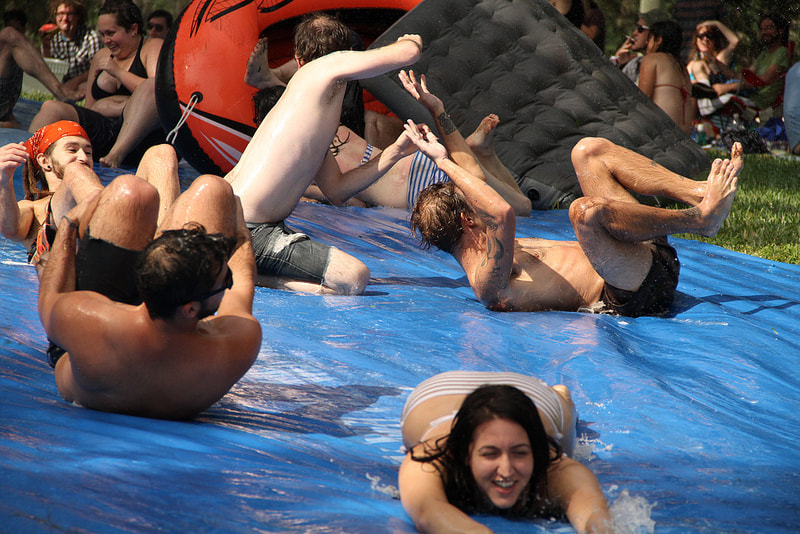
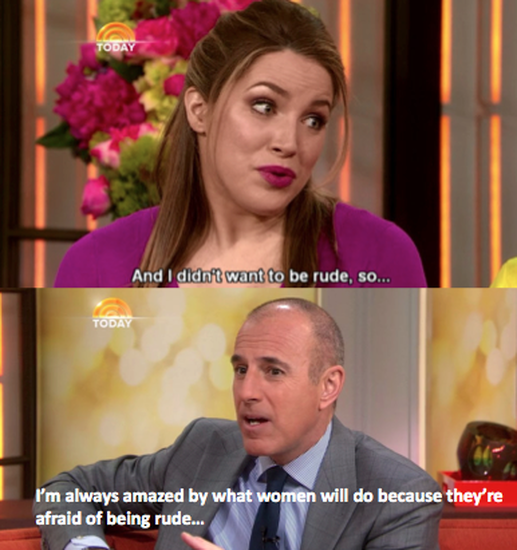



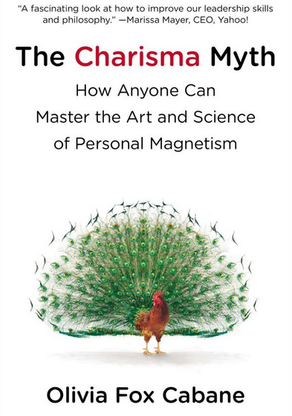
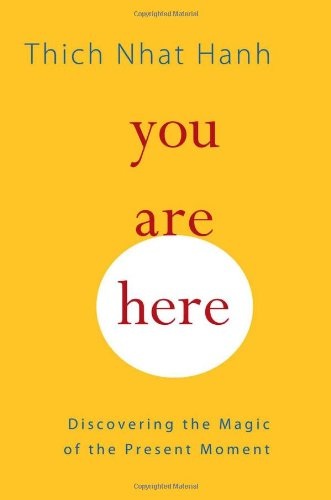

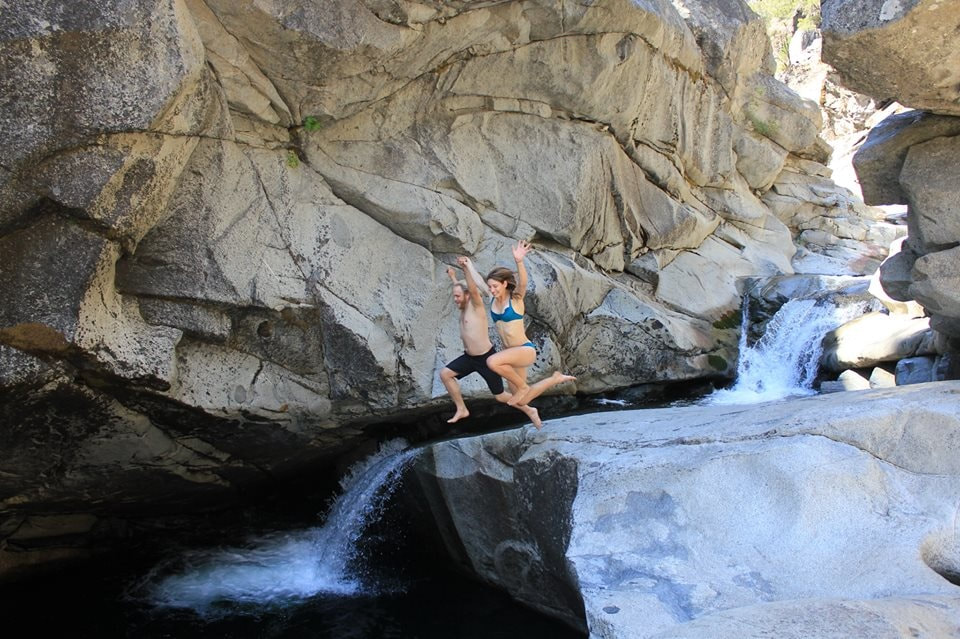



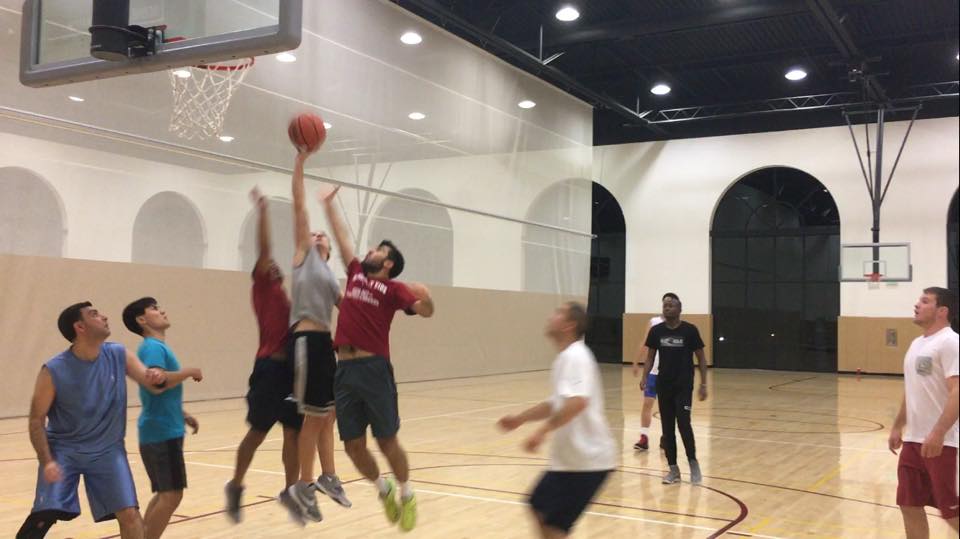
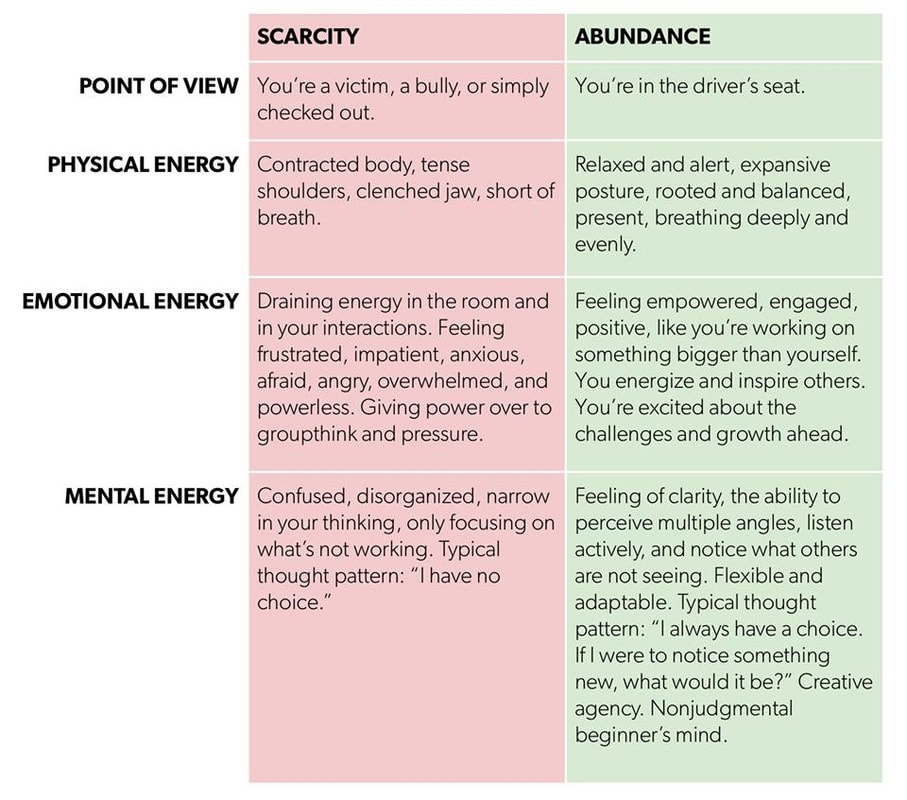
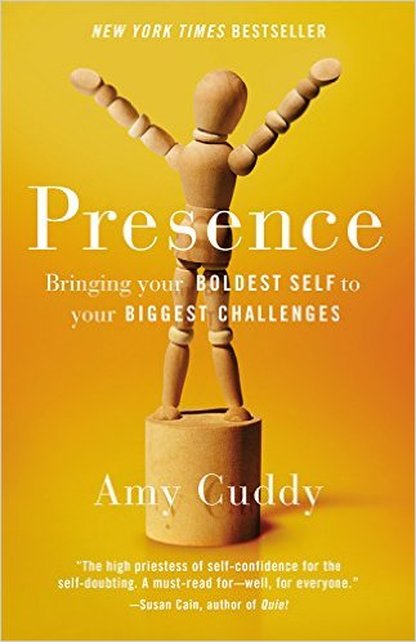
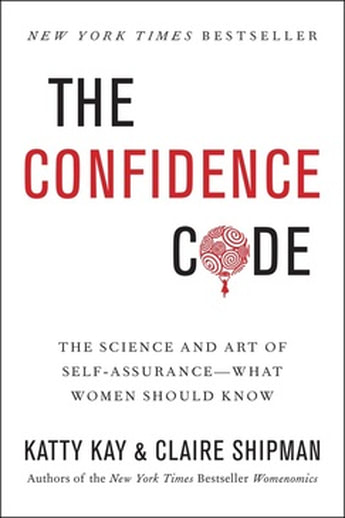



























 RSS Feed
RSS Feed